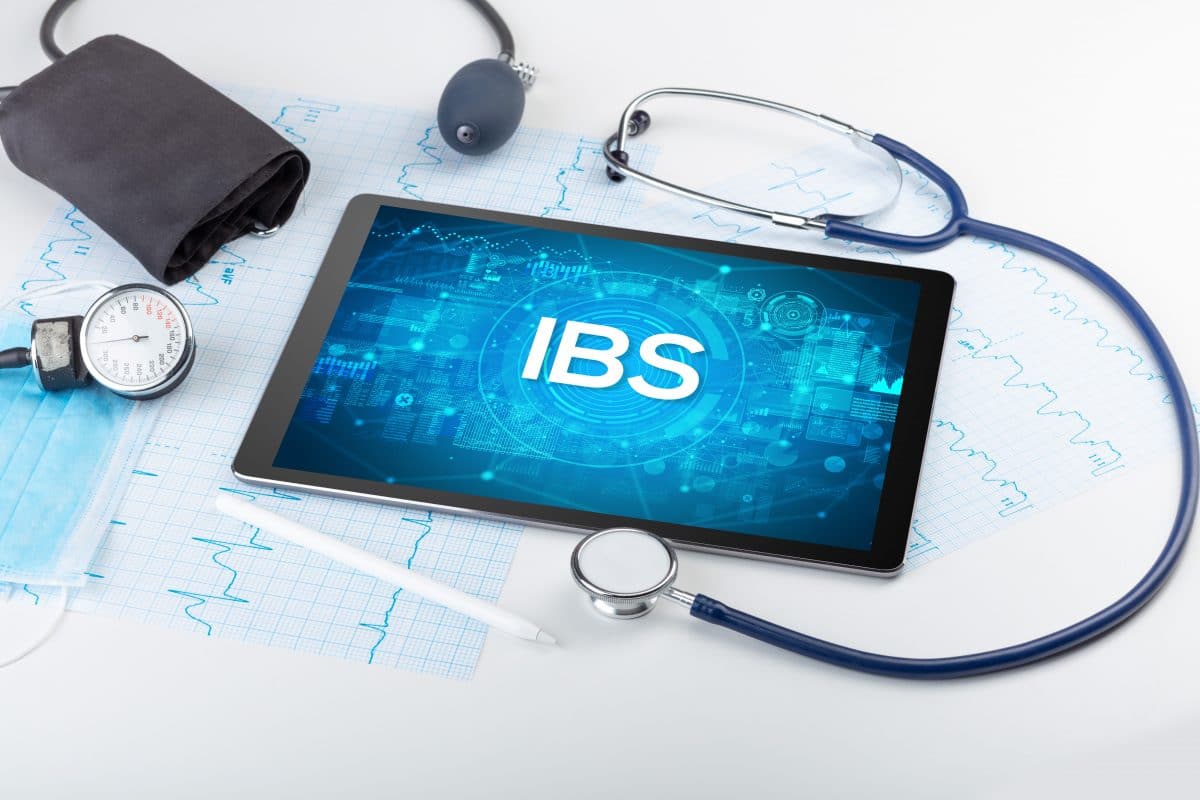Amitriptyline for IBS: Managing symptoms effectively
- Treatments, Testing and Diagnosis
Amitriptyline for IBS management could hold the key to a life with fewer disruptions, less discomfort, and greater control over IBS.
In this blog post, we’ll dive into the world of IBS and discover why amitriptyline, a medication that may not be on your radar, is a promising option for managing IBS symptoms effectively.
Whether you’re personally dealing with IBS, or know someone who is, this information could be a game-changer.

What is amitriptyline?
Amitriptyline is a medication belonging to a class of drugs known as tricyclic antidepressants.
Some of the brand names of amitriptyline that you may be familiar with are:
- Elavil
- Endep
- Vanatrip
- Lentizol
- Tryptizol
- Domical
The original purpose of amitriptyline was to treat depression, but it has also proven to be a versatile medication with uses extending beyond mood disorders.
Over time, medical professionals have discovered that tricyclic antidepressants like amitriptyline can impact pain and so have been used in treating conditions such as:
Can amitriptyline treat IBS?
The research shows that there is general improvement in IBS symptoms for people who take tricyclic antidepressants, such as amitriptyline, compared to those who did not (4).
The improvement in symptoms could link to improving these patients’ overall quality of life, with reduced pain and more manageable symptoms, making daily activities more manageable.
As such, the American College of Gastroenterology strongly recommends tricyclic antidepressants (such as amitriptyline) treatment for all types of IBS (5).
However, this is only recommended after the use of lifestyle changes as the certainty of evidence is generally low to moderate, indicating a need for further research (5).
Additional studies are needed to evaluate the long-term efficacy and safety of tricyclic antidepressants in treating IBS symptoms and compare them with other treatment options.
How does amitriptyline work for IBS?
Amitriptyline’s effectiveness in managing IBS lies in its ability to influence the communication between nerves in the gut and the brain.
By acting on neurotransmitter systems, amitriptyline can:
- Reduce visceral hypersensitivity
- Alter gut motility
- Reduce pain
1. Reduce visceral hypersensitivity
Many individuals with IBS experience heightened sensitivity to pain in their gastrointestinal tract. Amitriptyline can help desensitize the gut, reducing the intensity of pain signals (5).
It does this by altering the processing of information in the brain, especially during stressful conditions (6, 7)
2. Alter gut motility
IBS often involves irregular bowel movements. Depending on the subtype of IBS, this might be constipation, diarrhea, or fluctuating between the two.
Amitriptyline can help regulate gut motility, promoting more consistent and comfortable bowel habits (5).
At higher doses, amitriptyline can slow down the speed at which food moves through the gut, positively impacting bowel symptoms for some patients (8, 9, 10).
Equally, using tricyclic antidepressants to treat abdominal pain in patients with IBS-C may make constipation worse – a risk that needs to be monitored and managed in other ways.
You can read more about the management of constipation in our blog post: What is constipation and how can you treat it?
3. Reduce pain
Tricyclic antidepressants are believed to improve visceral and central pain by acting on the body’s cell receptors for norepinephrine and dopamine (9).
They may also improve abdominal pain because of their anticholinergic effect, which means they can inhibit involuntary muscle movements, or spasms (9).
Scientific studies have shown people who are on tricyclic antidepressants are more likely to have improved symptoms of abdominal pain than people who are not (11).
When can amitriptyline for IBS be considered?
Amitriptyline may be a viable option if you have tried other treatments for IBS that have not provided satisfactory relief or if you experience abdominal pain as a predominant IBS symptom (5).
However, amitriptyline is unavailable over the counter, so your doctor must prescribe it.
Remember, you are unlikely to see results immediately when starting amitriptyline for IBS, and your doctor will likely give you a timeframe for which you could expect to see any improvements.

What dosage of amitriptyline should you take for IBS?
The appropriate dose of amitriptyline for IBS can vary depending on several factors, including the severity of your symptoms and your response to the medication.
Generally, your doctor will initiate amitriptyline at a low dose; starting doses for IBS range from 10 to 25 milligrams (7). This is much lower than the recommended dosage for depression.
Your doctor may gradually increase the dose if needed to get relief of symptoms while balancing the risk of side effects.
Is amitriptyline safe for IBS?
As with any medication, it’s crucial to address safety concerns. Amitriptyline, while promising to manage IBS symptoms, is not without potential side effects and precautions.
Common side effects of amitriptyline may include (12):
- Drowsiness
- Dry mouth
- Constipation
- Blurred vision.
It’s important to note that these side effects can vary from person to person, and not everyone will experience them.
Amitriptyline may not be suitable for everyone, especially those with a history of certain medical conditions or taking specific medications.
Your doctor can evaluate your situation, assessing the potential benefits against any risks and considering factors such as your medical history and current medications.
How to take amitriptyline for IBS
Amitriptyline is typically taken once daily, preferably at bedtime. This timing can help mitigate drowsiness, a common side effect associated with the medication.
To maximize amitriptyline’s effectiveness, it’s essential to take it consistently at the same time each day.
Always follow your healthcare provider’s instructions regarding dosage and usage. Do not adjust the dose or discontinue the medication without consulting them first.
Summary
Although initially designed to treat depression, amitriptyline extends its reach, relieving IBS symptoms like pain, discomfort, and erratic bowel habits.
Amitriptyline can be an effective drug for managing IBS symptoms where other medications have not worked or if pain is one of the main symptoms of your IBS.
While its benefits are notable, it’s not without side effects like drowsiness and dry mouth.
Amitriptyline is just one piece of the IBS management puzzle, which includes lifestyle changes, stress management, and a healthcare provider’s guidance.
Consulting with a medical professional is essential to determine if amitriptyline is the right choice for managing your specific IBS symptoms.